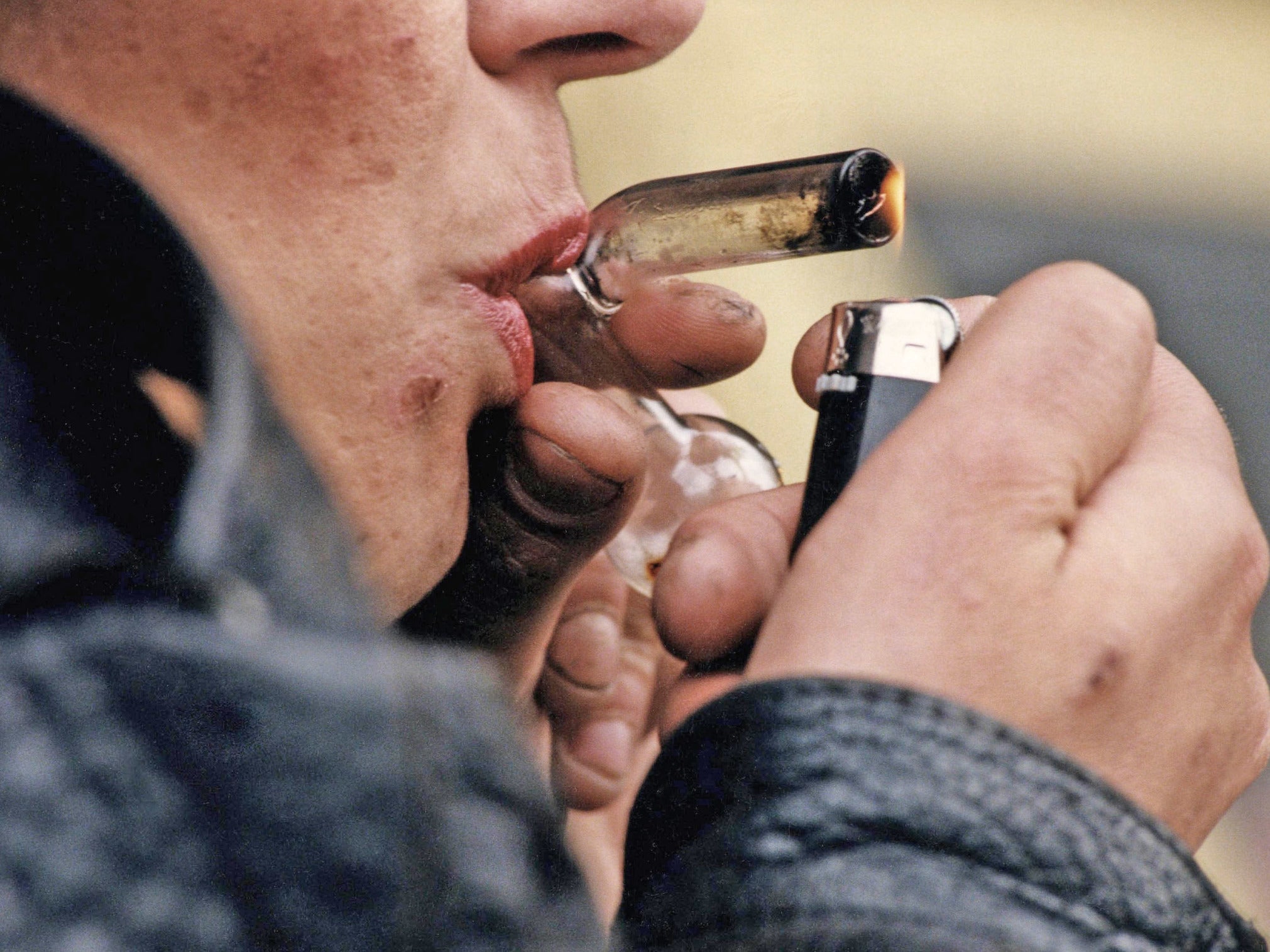The US won’t end the war against drugs, but it can try
World Focus


Your support helps us to tell the story
From reproductive rights to climate change to Big Tech, The Independent is on the ground when the story is developing. Whether it's investigating the financials of Elon Musk's pro-Trump PAC or producing our latest documentary, 'The A Word', which shines a light on the American women fighting for reproductive rights, we know how important it is to parse out the facts from the messaging.
At such a critical moment in US history, we need reporters on the ground. Your donation allows us to keep sending journalists to speak to both sides of the story.
The Independent is trusted by Americans across the entire political spectrum. And unlike many other quality news outlets, we choose not to lock Americans out of our reporting and analysis with paywalls. We believe quality journalism should be available to everyone, paid for by those who can afford it.
Your support makes all the difference.Over the past five years, the Bay Area has seen a 75 per cent drop in drug arrests. This is partly because of California’s evolving drug laws but, according to a recent report in the San Francisco Examiner, it has more to with a “philosophical shift” in local law enforcement. It seems appropriate, then, that the US Attorney General this week chose San Francisco as the venue to signal the Obama administration’s own philosophical shift on drug enforcement.
Addressing the American Bar Association’s conference in the city on Monday, Eric Holder said he would instruct prosecutors to cease listing drug quantities in minor indictments. The law obliges judges to mete out mandatory minimum sentences to offenders, depending on the volume of drugs involved. But if that volume goes unmentioned, judges will be free to order lesser sentences. A modest proposal, but one that could herald a momentous trend: the winding down of America’s 40-year war on drugs.
Violent crime rates have tumbled since tough sentencing guidelines were introduced during the crack epidemic of the 1980s and 1990s. Yet the number of inmates in US jails has risen by 800 per cent since 1980. Almost 47 per cent of those incarcerated are drug offenders, and a vastly disproportionate number are African-American.
“Too many Americans go to too many prisons for far too long and for no good law enforcement reason,” Mr Holder said, lamenting the system’s “moral and human costs”. He added: “As the so-called war on drugs enters its fifth decade, we need to ask whether it, and the approaches that comprise it, have been truly effective.”
Though the new measures have the benefit of bypassing Congress, sentencing reform enjoys rare bipartisan support. After Mr Holder’s speech, a Republican Senator, Rand Paul, said he was “encouraged that the President and Attorney General agree with me that mandatory minimum sentences for nonviolent offenders promote injustice and do not serve public safety”.
The Holder reforms also reflect a cultural shift in attitude to drugs and drug policy. Last week Sanjay Gupta, CNN’s chief medical correspondent, came out in favour of legalising medical marijuana. Gupta, who was once considered for the post of US Surgeon General, had previously argued against legalisation, but now says he was wrong. The new sentencing measures and Gupta’s Damascene conversion may appear to be only tangentially related, says Ethan Nadelmann, of the Drug Policy Alliance, “but what both boil down to is a repudiation of the drug war hysteria and its residue that has infused American criminal justice policy for more than 30 years”.
Gupta’s developing views match those of the US public, among whom support for marijuana legalisation has risen steadily. Polls suggest about half of the population now supports legalisation, up from one-third in 2005. Cannabis remains illegal at federal level, and seems likely to stay that way for some time. Yet the Government has intervened sparingly in states where the laws have been relaxed. Last year, voters in Colorado and Washington state passed laws legalising weed for recreational use. Medical marijuana is already permitted in 20 US states, as well as Washington, DC.
Meanwhile, there is enthusiasm for legalisation in countries affected by the wider war on drugs. Vicente Fox, the former president of Mexico, said last month that his country could end pot prohibition. The President of Colombia is in favour of legalisation, while Guatemalan President Otto Pérez Molina has said he would like to see worldwide legal regulation of all drugs.
This month, Uruguay’s congress voted to create the world’s first legal national cannabis market. The US will surely keep a close watch on this bold experiment. Barack Obama would be hard pressed to end the war on drugs before 2016, but his administration at least appears prepared to draw it down.
Join our commenting forum
Join thought-provoking conversations, follow other Independent readers and see their replies
Comments